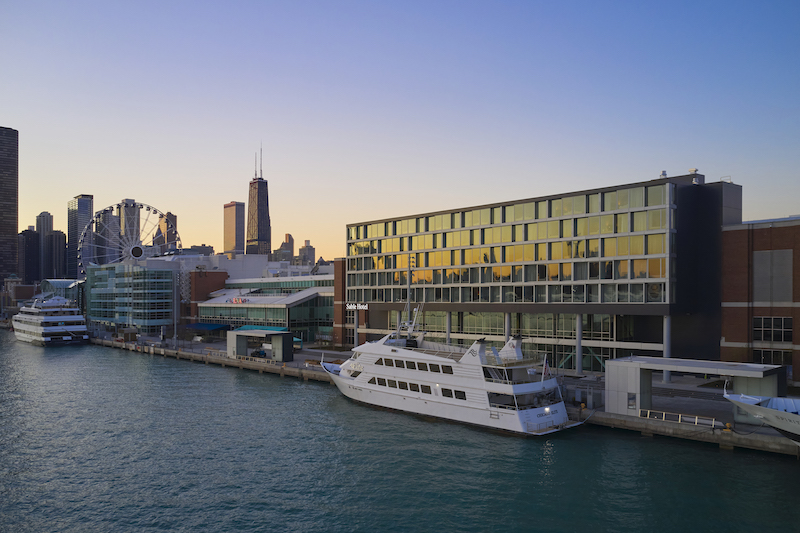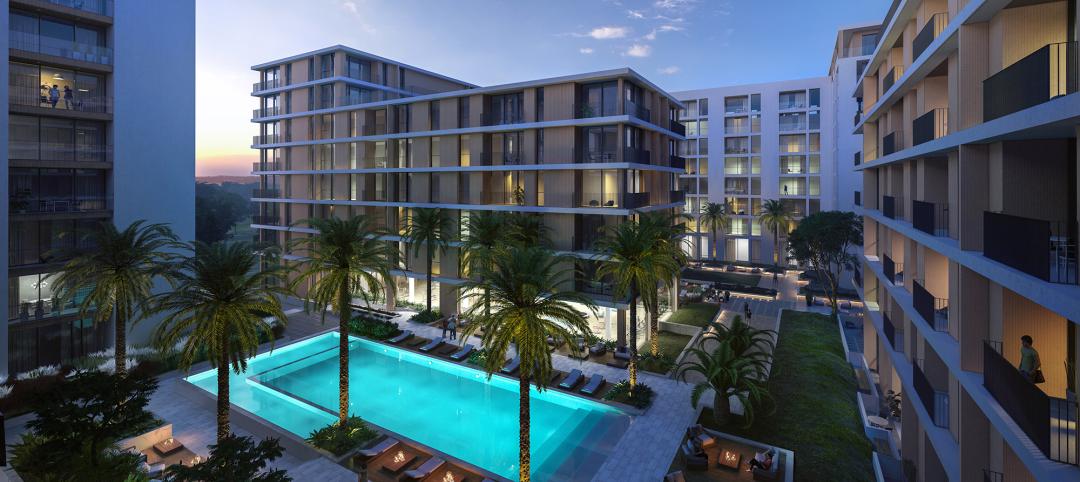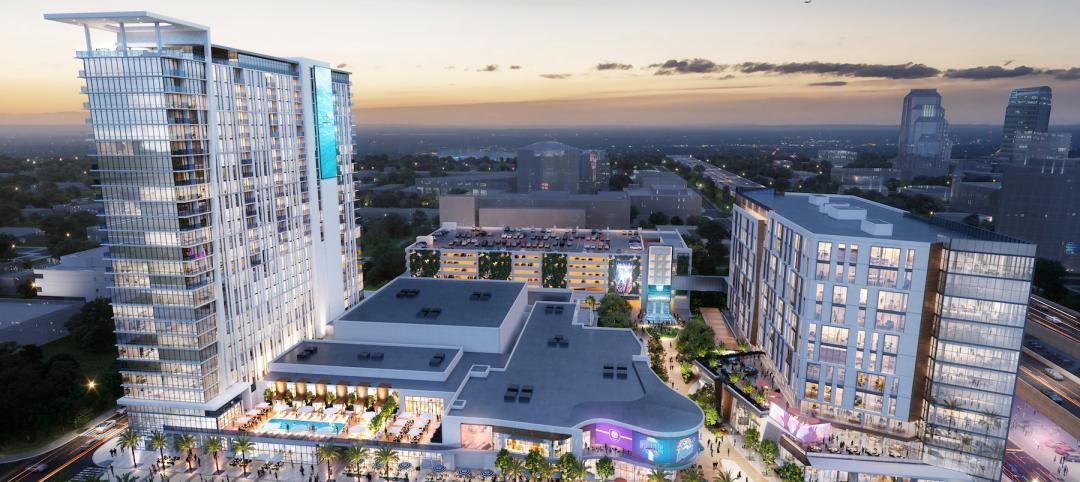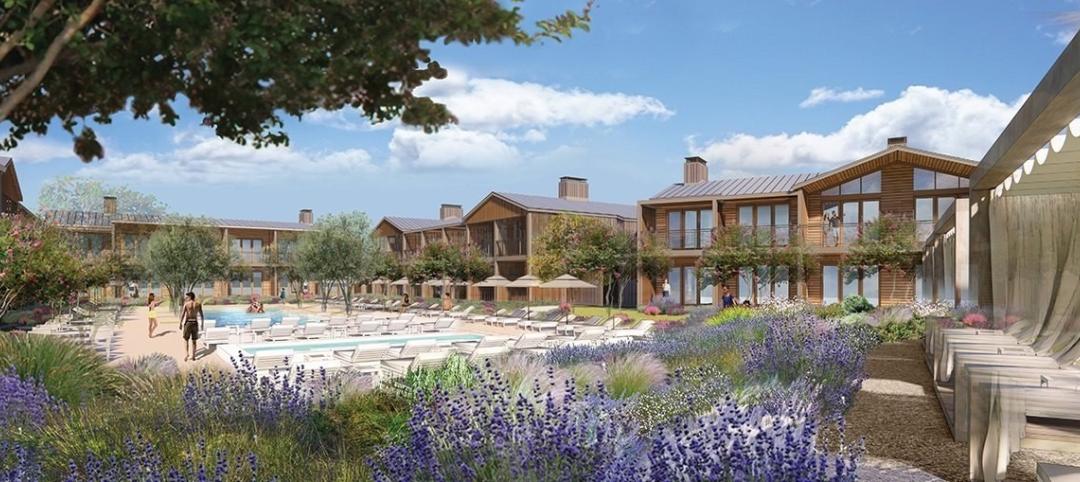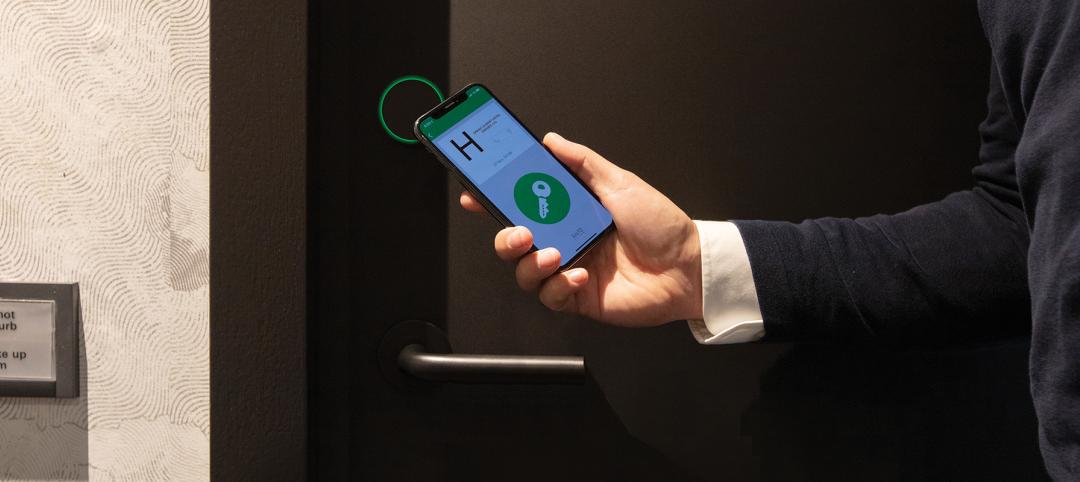Navy Pier’s first hotel, Sable at Navy Pier, opened this week in Chicago. The KOO-designed project links the lake with the city that acts as its backdrop.
KOO started with a window box as the organizing principle for the design of the facade and guest rooms. Each of the 223 guest rooms features a window seat with views of Chicago’s skyline and Lake Michigan. The angled surface of each room’s window seat creates a textured exterior that reflects the range of light, shadow, and color of the lake.
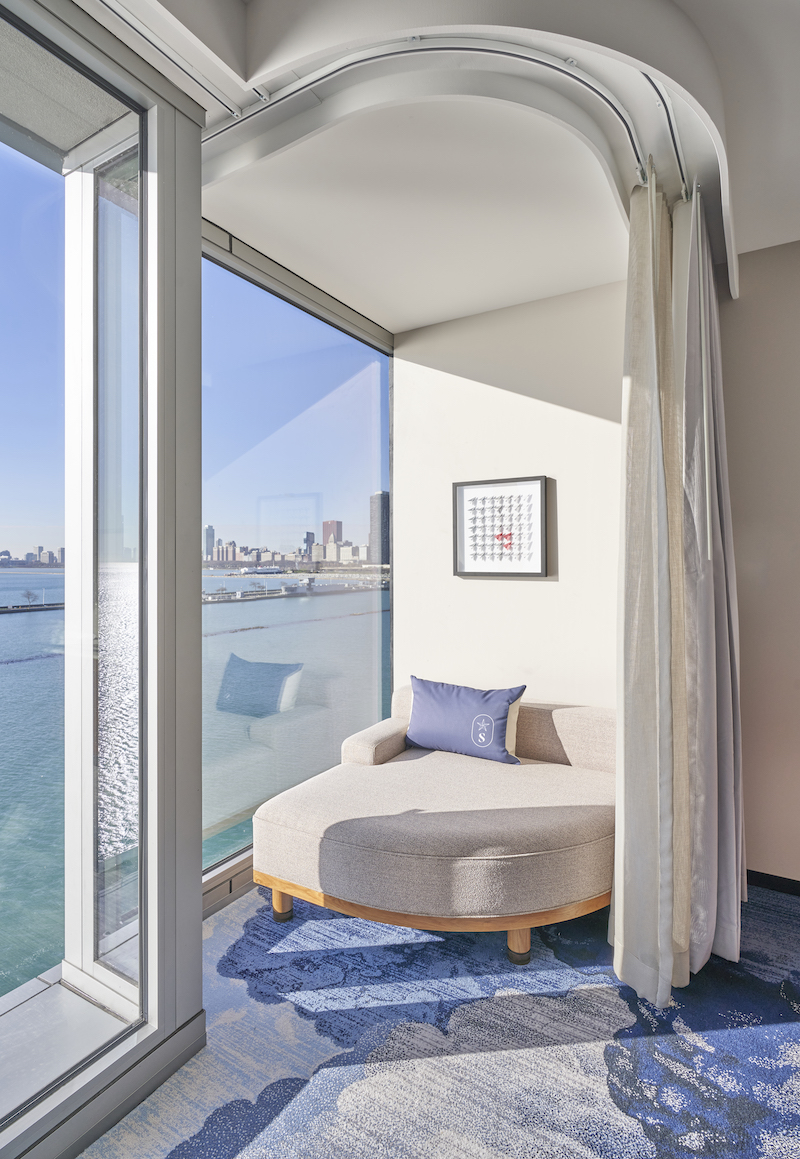
The interior design, also done by KOO, pulls inspiration from Navy Pier’s history as a port and the eponymous USS Sable by incorporating subtle nautical cues like weathered brass, ship building materials, and the use of smooth curves similar to those of a ship’s interior cabin. The color palette is grounded by mixed neutrals and highlighted by a spectrum of blues and blue-greens reminiscent of the colors of Lake Michigan.
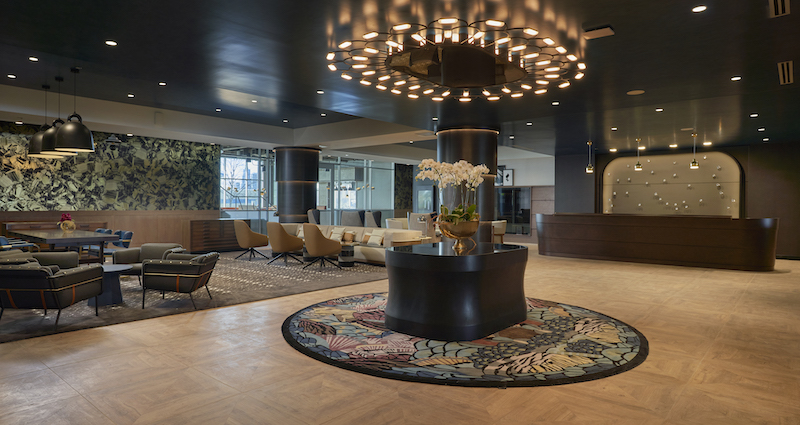
The design of Sable at Navy Pier also preserves Navy Pier’s structure. A unique structural engineering approach was introduced to protect the pier. The design uses micropiles that thread through the existing pier foundations and lake water to bedrock below. The micropyles support new columns and a new structural slab that creates a platform to carry the hotel floors. The columns create an arcade that supports the hotel rooms above the Sable at Navy Pier’s lobby and newly created retail space.
In addition to KOO as the architect, James McHugh Construction Co. was the project’s general contractor. Sable at Navy Pier is targeting LEED Silver certification.
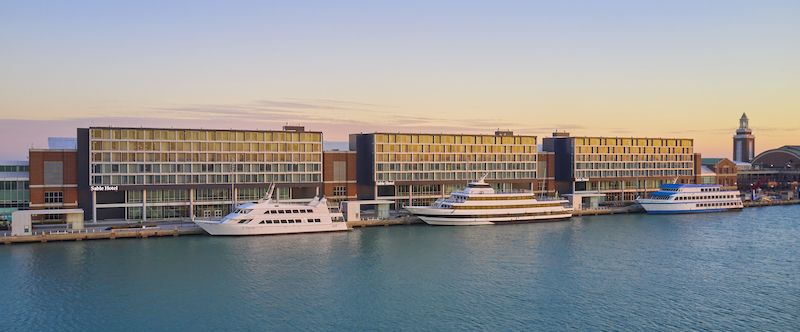
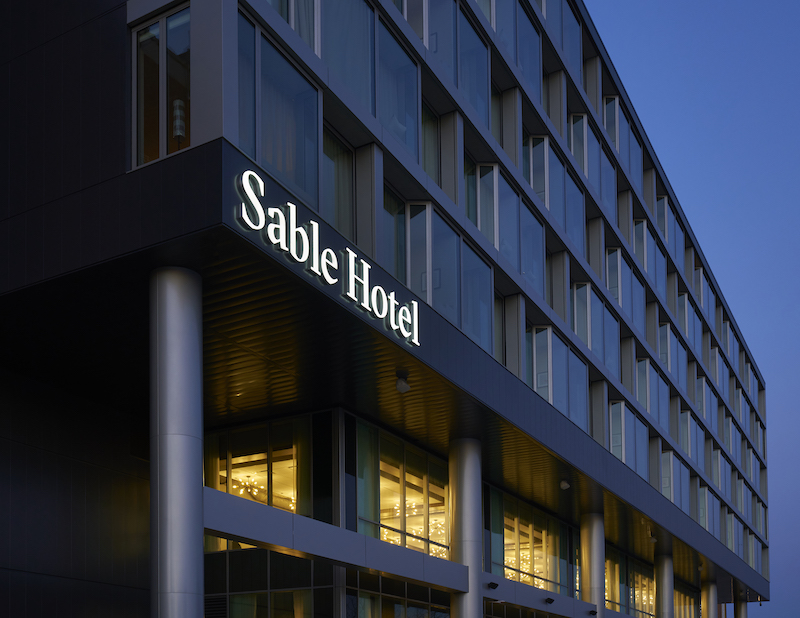
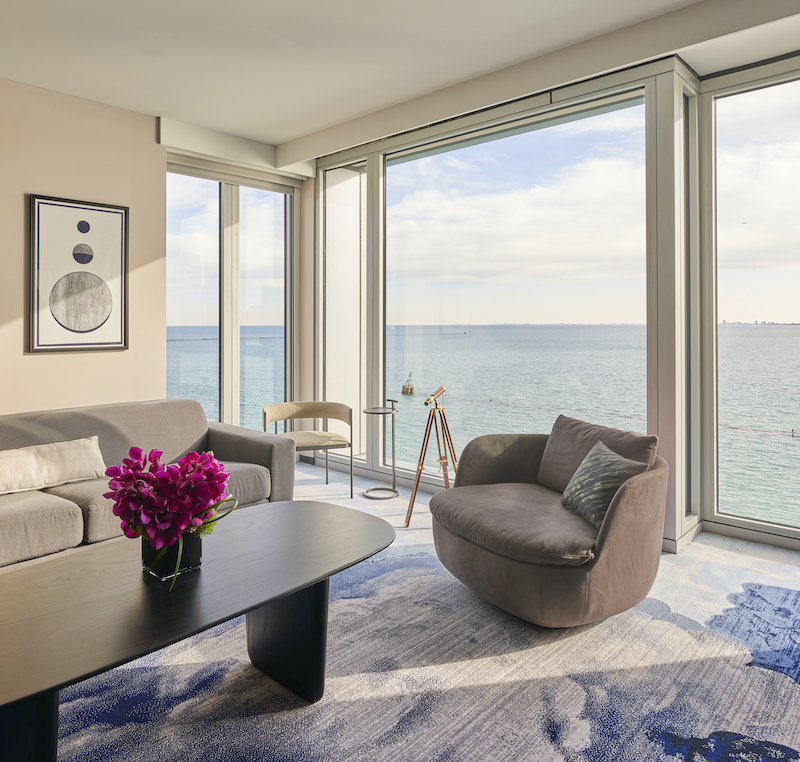
Related Stories
Smart Buildings | Jul 25, 2024
A Swiss startup devises an intelligent photovoltaic façade that tracks and moves with the sun
Zurich Soft Robotics says Solskin can reduce building energy consumption by up to 80% while producing up to 40% more electricity than comparable façade systems.
Adaptive Reuse | Jun 13, 2024
4 ways to transform old buildings into modern assets
As cities grow, their office inventories remain largely stagnant. Yet despite changes to the market—including the impact of hybrid work—opportunities still exist. Enter: “Midlife Metamorphosis.”
Adaptive Reuse | May 9, 2024
Hotels now account for over one-third of adaptive reuse projects
For the first time ever, hotel to apartment conversion projects have overtaken office-to-residential conversions.
Adaptive Reuse | Apr 29, 2024
6 characteristics of a successful adaptive reuse conversion
In the continuous battle against housing shortages and the surplus of vacant buildings, developers are turning their attention to the viability of adaptive reuse for their properties.
Hotel Facilities | Apr 24, 2024
The U.S. hotel construction market sees record highs in the first quarter of 2024
As seen in the Q1 2024 U.S. Hotel Construction Pipeline Trend Report from Lodging Econometrics (LE), at the end of the first quarter, there are 6,065 projects with 702,990 rooms in the pipeline. This new all-time high represents a 9% year-over-year (YOY) increase in projects and a 7% YOY increase in rooms compared to last year.
Mixed-Use | Apr 23, 2024
A sports entertainment district is approved for downtown Orlando
This $500 million mixed-use development will take up nearly nine blocks.
Hotel Facilities | Apr 17, 2024
Will the surge in hotel construction carry resorts with it?
The resort corner of the hospitality sector has been a bit slower to expand than the whole for the past few years. But don’t tell that to Bill Wilhelm, President of R.D. Olson Construction.
Sponsored | Hotel Facilities | Apr 8, 2024
The Rise of Mobile Keys in Hospitality
Unlocking the future of hospitality—mobile keys are transforming the guest experience and streamlining hotel ops.
Adaptive Reuse | Mar 30, 2024
Hotel vs. office: Different challenges in commercial to residential conversions
In the midst of a national housing shortage, developers are examining the viability of commercial to residential conversions as a solution to both problems.
Adaptive Reuse | Mar 26, 2024
Adaptive Reuse Scorecard released to help developers assess project viability
Lamar Johnson Collaborative announced the debut of the firm’s Adaptive Reuse Scorecard, a proprietary methodology to quickly analyze the viability of converting buildings to other uses.


